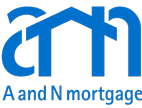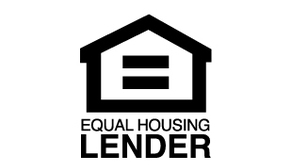A Detailed Explanation of Closing Cost Credits
Most homebuyers have almost no idea what they are doing while buying a home, especially first-time homebuyers. Therefore, it is not surprising that 64% of millennials regret handling the home purchase process.
People must understand the various terminologies that real estate agents use. One such term is ‘closing cost credits.’ Knowing what it means is crucial to securing a deal on your dream house.
What Is Closing Cost Credits?
A closing cost credit is when the buyer takes money from the home seller to pay whole or offset closing costs. This cost covers any pending potential house repairs at the closing. Property sellers have to pay a closing credit cost based on the terms mentioned in the home purchase contract.
For example, suppose you have a conventional loan program with a 5% or less down payment. In that case, the maximum cost credit you receive is a 3% down payment of the purchase price. However, if your down payment is more than 5%, you are eligible for 6% of the purchase price down payment.
One thing that you must remember is that closing cost credit never exceeds closing cost or prepaid items.
What Is the Closing Cost?
Closing cost is the amount due at the closing of a real estate transaction, paid before the ownership transfer. This cost is a different amount from the property’s purchase price. You’ll have to pay closing costs, including services charges for your real estate attorney and your mortgage lender.
Tips for Minimizing Closing Costs
There is no one route to buying a new home, and there are many ways to navigate the lending system. Here are just a few options to consider if you’re looking to keep your closing costs low while still securing the home of your dreams:
- 1. Pay closing costs beforehand
It is possible to pay all closing costs upfront during your closing appointment using a cashier’s check. This may be a suitable option if you’re hoping to keep your mortgage repayments as low as possible and keep your loan rate stable. However, if you’re already working with a tight budget, this money may be better spent on furnishings for your new home or covering the costs of moving.
- 2. Roll costs into your mortgage loan
For most loan types (other than VA loans), you can roll closing costs into your overall mortgage loan, meaning you won’t have to pay a large chunk of money upfront when settling your contract. This may be useful if you’re a first-time buyer and anticipate making more money in the future. However, it will increase the cost of monthly payments and impact your loan-to-value ratio, potentially limiting your financial freedom in the future.
- 3. Choose a no-closing-cost mortgage
Many lenders offer to pay closing costs, including on FHA and VA loans. This is a good option if you do not have the funds to pay any upfront fees at the time of your closing appointment. It will not increase your loan, but it could significantly push up the interest rate, meaning higher monthly payments.
- 4. Shop around for a decent loan
Before you decide on a lender, it makes sense to request several loan estimates from a range of lending institutions. This will allow you to weigh up your options and find a deal that works for you. Loan terms can vary significantly between lenders, so you may find one that offers an obvious advantage based on your circumstances. However, remember to read the small print of any loan contract and only work with lenders you feel you can trust.
- 5. Don’t be afraid to negotiate
Depending on the health of the real estate market, a seller may agree to offer closing cost assistance, particularly if they are hoping to close a deal quickly. Most types of loans allow sellers to hand over a certain percentage of the property’s sale price as a closing cost credit, thereby reducing the financial burden on the buyer.
If you decide to pursue this route, it’s important to seek advice from your lender. The amount of money a seller can contribute will depend on the terms of your loan. If you discover that your lender is unable to facilitate closing cost credits from a seller, you could simply ask the seller to lower the price of the home to offset expensive closing costs. This is worth a try if you love the property in question and your budget falls just slightly short of the asking price.
- 6. Research your insurance options
Homeowner’s insurance plans can vary widely, with some requiring buyers to pay a significant portion of the premium at closing. If you’re keen to save on closing costs, you may wish to select an insurance policy at the cheaper end of the scale. Keep in mind, however, that you tend to get what you pay for when it comes to insurance, and purchasing suboptimal coverage could leave you out-of-pocket in future.
- 7. Get help from your employer
If your employer offers a home-buying assistance program, you may be able to use company funds to cover your closing costs. Most lenders allow buyers to utilize employer assistance – you simply need to provide official documentation to demonstrate your eligibility.
- 8. Take advantage of your military status
Military workers, veterans, and their family members are eligible for VA loans – mortgage programs that offer zero percent minimum down payment requirements. On top of this, many VA loans help with closing costs, so research your options carefully before making a purchase.
- 9. Use gifts from relatives
Most loan programs allow buyers to utilize gifted money to cover closing costs, provided that the funds are not borrowed. To prove that the money has been gifted, and you will not have to pay it back, most lenders ask for documentation such as a letter from the donor. You will also need to provide evidence of where the funds originated.
- 10. Use funds from your 401K
Some 401K plans allow buyers to borrow funds for the sole purpose of purchasing a new home. Of course, the viability of this option will depend on the terms of your program and must be approved by your plan director. You will need to reach out to your HR department to ascertain whether you are eligible and for a full list of repayment terms. Be aware that some repayment terms are very strict and could incur penalties if breached.
What Are Prepaid Items?
Prepaid items include property taxes and homeowners insurance. These are upfront cash payments you must pay at the closing. This amount is placed into an escrow account to pay for mortgage expenses included in monthly scheduled homeownership-related fees.
Choose Expertise and Experience
Buying your home without a real estate agent’s assistance is a complex and tiring process. Moreover, you may later discover agreement clauses that require you to pay additional expenses.
Contact A and N for the expertise you can depend on. He has 15 years of experience in the mortgage industry, guiding numerous people to make better mortgage decisions.







